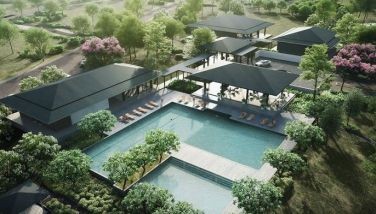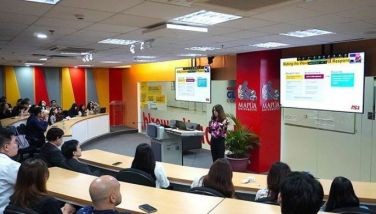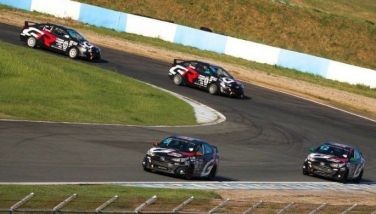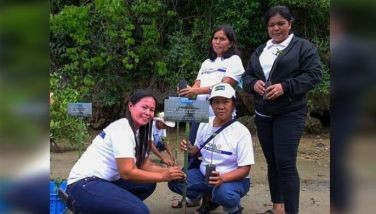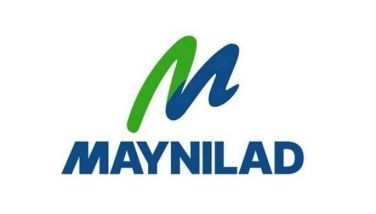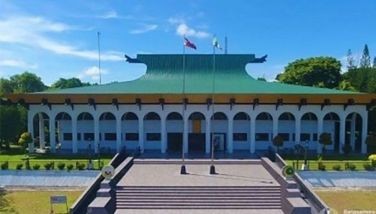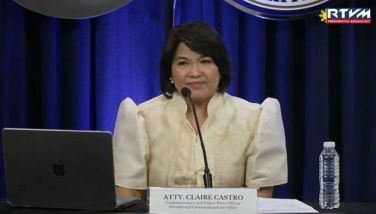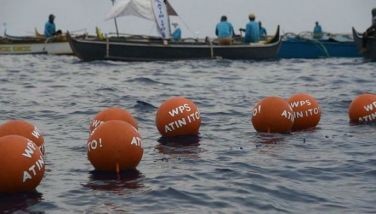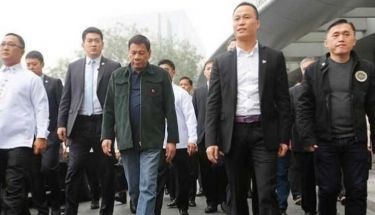Order in our lives

LOS ANGELES — It is a great feeling to see order in our surroundings and in our lives. The daily chaos we experience because of lack of good governance and discipline eventually take a toll on us. You know you are out of the Philippines and in to a first world country when you see order in the flow of things.
I am not saying that this American city or any American city for that matter is some kind of nirvana in this regard, but it is quite a relief to see cars stopping for pedestrians and generally respecting the rules of the road. That’s why I find it hard to drive in America. I am such a defensive driver, one that assumes that the other guy is an idiot who will violate the rules, that I find it strange how drivers here assume the exact opposite. Sure there are idiot drivers here too as in any place on earth, but they do get caught sooner or later and traffic cops here mean business.
Zoning rules are also generally well enforced here. Communities are vigilant in seeing to it that everyone toes the line in terms of building standards, technical as well as aesthetic. Even the act of trying to change a window to a more energy efficient one requires the permit of the village association. Garbage bins must be out of sight except on the night before collection day. Homeowners are responsible for the condition of the sidewalk in front of their homes.
Maybe it is our third world mindset that makes everything topsy turvy. But it is encouraging that efforts are being made at the grassroots level to set things right. Just before publicist Jingjing Romero left for Europe to join her apo for the holidays, she e-mailed me details of the Galing Pook Award, an effort to cite good governance efforts at the grassroots level. The year 2009 was deemed a banner year for good governance by the National Selection Committee chaired by Prof. Solita Monsod.
Five awardees hail from Mindanao, two from Visayas and seven from Luzon. Winning programs range from peace and conflict resolution to environmental management to health and social services. Each program of each local government unit, from barangays to municipalities, cities and provinces, was evaluated for innovation, positive results, transferability and sustainability, people’s participation, and The following are the 2009 Galing Pook awardees:
Sarangani province was cited for Kalinaw Sarangani, a program that enjoins different ethno-linguistic groups to take part in peace-building, development planning, decision-making, governance and the formation of 50 peace and development communities. The program involves culture sensitivity practices, livelihood assistance, skills development, infrastructure and other social services.
Midsayap, Cotabato province was cited for efforts of some riverside communities, populated by a mix of Christians and Muslims, to establish a conflict resolution mechanism. The council acts as peacemaker, mediator, referee, guide, peace and order enforcer, and even endorses community projects.
Surallah, South Cotabato had an innovative program that involves the farming community in organic and bio-dynamic agriculture and the production of alternative medicine. In a household, the children and parents together brew Korean Natural Farming and bio-dynamic preparations that are applied to the crops. Ingredients used in the processing of alternative medicine are taken from these organically grown crops. The whole family practically participates together and gains better access to livelihood while improving their health.
Malaybalay’s city government tackles inaccuracies in data gathering and city surveys through its Malaybalay Integrated Survey System. Patterned after the DILG’s Community-Based Monitoring System, the survey has 231 questions covering the information needs of the different departments. This gives a better picture of the city’s constituents and their needs, and provides a basis for development and action planning.
Barangay Barobo, Valencia City has a project that uses vermi culture as a means to improve household incomes in this barangay of farm workers. Vermi worms feed on bio-degradable waste products and in turn produce vermi cast, which is used as organic fertilizer in rice and vegetable production. The project has increased incomes by 40 percent and freed many from long standing debts. It has also popularized organic farming in the area, and reduced farming production costs as much as 48.5 percent.
Tabuk, Kalinga has the Matagoan Program which created a council composed of the head of the Municipal Peace and Order Council and representatives from the eight original sub-tribes of Tabuk. The council settles disputes between tribes and within tribes, to promote the peace pact and to conduct the annual renewal of peace and unity vows. Since then, the Matagoan Program has helped settle 33 of 35 tribal conflict cases. Criminality went down and the improved peace and order has brought a rise in business establishments.
In Bulacan, Gawad Dr. Manuel G. Roxas recognizes outstanding achievements in public services of offices and departments of the provincial government. Executed well, these projects help the provincial government find innovative ways to serve constituents. Twelve winners since the awards were introduced have become regular government programs. The projects also help offices and departments gain feedback and become better attuned to the citizen’s needs.
Barangay Luz launched Kuarta sa Basura for the community to earn through recycling, composting and other environment-friendly activities. Various sector organizations like the youth, elderly and women’s groups are now so heavily involved in raising awareness, cleaning, segregating, recycling and monitoring their surroundings. The barangay’s total waste disposed in the city landfill is now only 28 percent, while the rest of the waste is converted to cash through recycling and composting.
Bayawan City, Negros Oriental with the help of the German Technical Cooperation Agency, established an economical and ecologically sustainable system called “Ecosan.” The project basically treats and transforms human waste products appropriate for use as fertilizer and soil conditioner, and for re-use in irrigation, construction and firefighting. Bayawan’s Ecosan project is a breakthrough in the improvement of sanitation programs. It is the country’s first LGU-constructed and managed wetland wastewater treatment facility.
In Marikina, consumers in the city can savor their food and water with the assurance of the Clean Food and Water Laboratory project. The city government disseminates information on food safety and hygiene and has required food vendors in public markets to undergo Comprehensive Food Safety and Personal Hygiene training. The project also regularly monitors water and food quality through the city’s own laboratory. Neighboring cities have also begun to avail of the lab’s services. The project is now being replicated by Muntinlupa City.
Taguig has launched the Taguig Citycard, an ID card system that allows residents to have free or discounted access to various social services, and priority in employment opportunities. By requiring a levy of P750.00 annually from the private companies for every non-resident employee, the city is able to generate additional revenue for financing its social services. Thus, the city has devised a way of making the rich sector of Taguig help in the provision of social services for the poor.
Quezon City’s Parks Development and Administration Department has helped transform the city with the development of the La Mesa Eco Park, the CP Garcia Park, North Olympus Park and the Tandang Sora Shrine, among others. The proactive participation of various government entities, NGOs, the private sector and concerned community and church leaders in these projects have helped transform the cityscape. Barangays are empowered to develop parks in a cost-sharing arrangement with the city. Beyond image-building, the parks have helped increase property values, improve the residents’ well-being and promote peace and order.
Makati’s Waste Diversion and Reduction Program has greatly reduced the volume of city waste, as much as 84,196 tons of equivalent carbon dioxide. The program increases the income of indigent households by turning in recyclables. The Baratilyo ng Basura sa Barangay involves the Kapisanan ng mga Junkshop Operators sa Makati, which provides logistical support, while the cluster barangay schedules and provides a venue for the event.
Parañaque’s Adolescent Friendly Reproductive Health Services (AFRHS) program promotes and provides quality health services responsive to the needs of adolescents. They are involved in planning, implementing and evaluating different interventions. Health centers have a special room for counseling and treating adolescent clients. Peer education to promote healthy lifestyles has been undertaken. As such, the government hopes for a continuing decline in the rate of teenage pregnancy, abortion and sexually transmitted diseases.
These islands of excellence in a sea of chaos provide hope.
Mag Kapamilya
Here’s something from Ed Umali.
Mrs: Kung alam ko lang di sana ako nagpakasal sa iyo! ABS ka!
Mr: Anong ABS?
Mrs: Alak, Babae, Sugal!!
Mr: Eh ikaw CBN!
Mrs: CBN?
Mr: Chismosa, Bungangera, Nagger!.
Boo Chanco’s e-mail address is bchanco@gmail.com.
- Latest
- Trending










